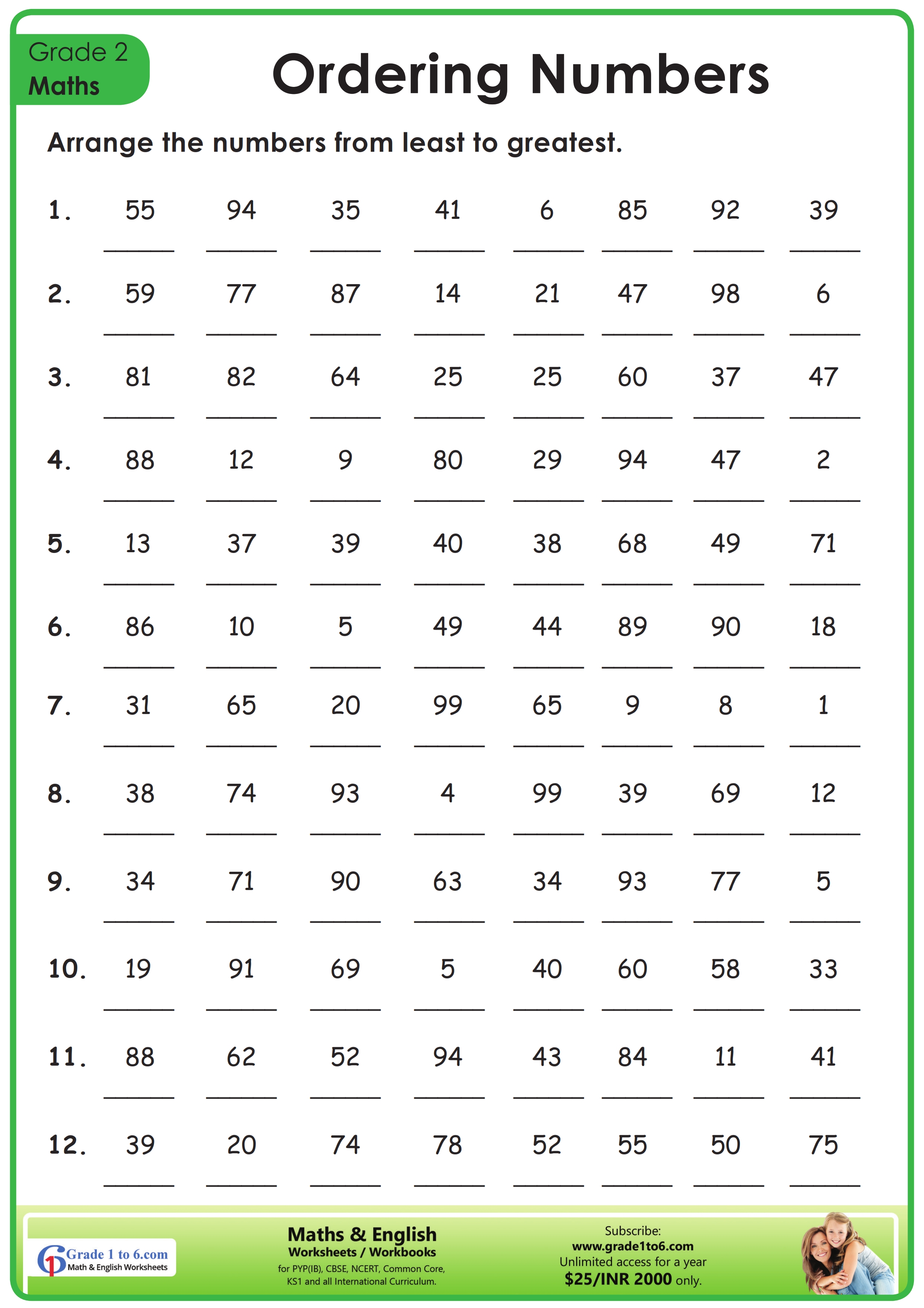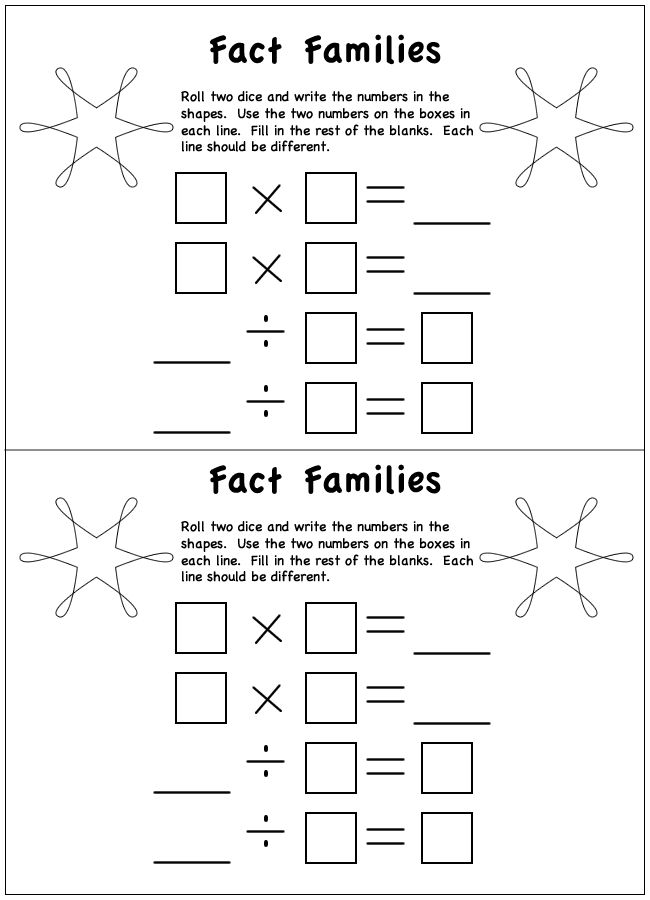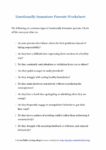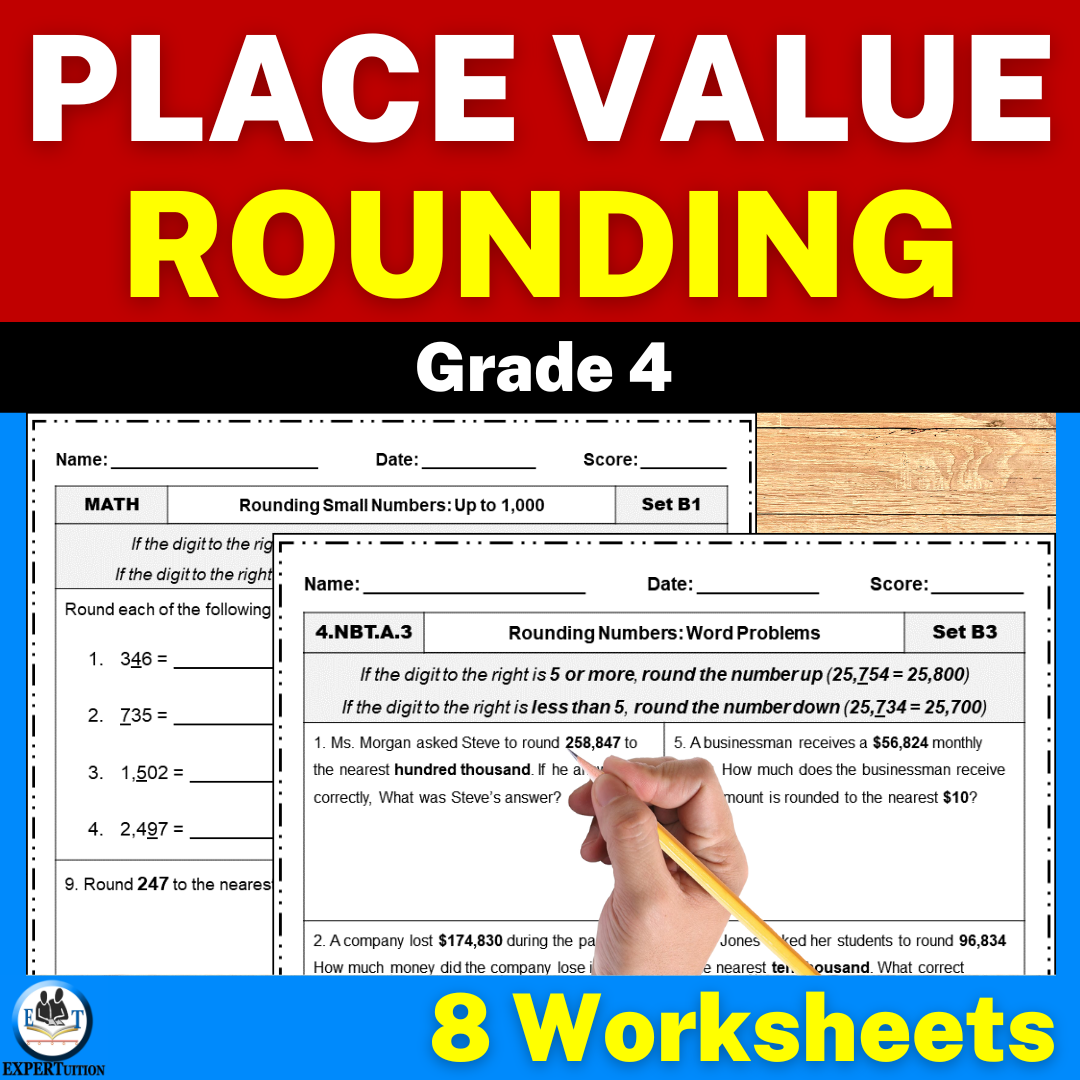Substance Use Worksheets for Recovery and Support
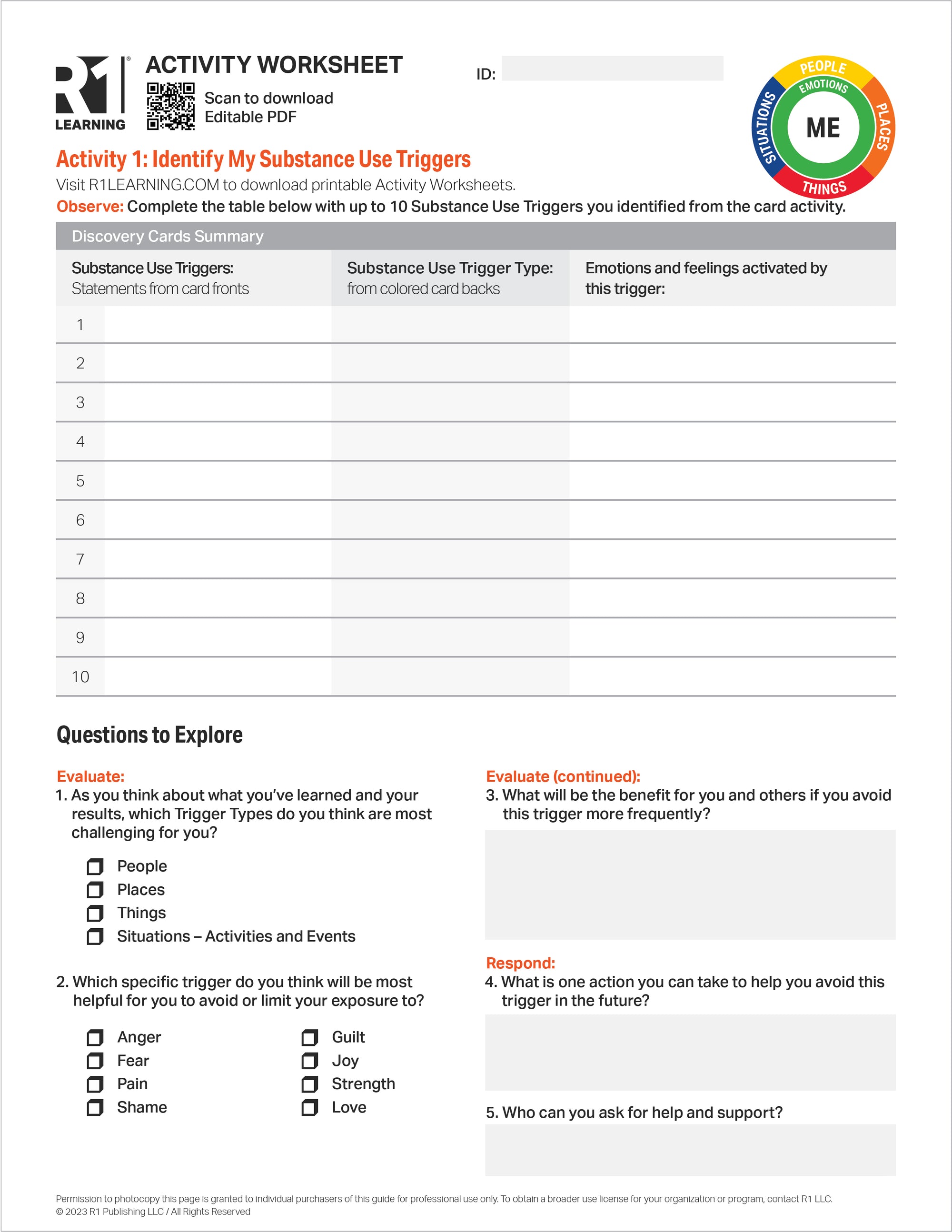
Introduction to Substance Use Worksheets
Recovery from substance use is a complex and ongoing process. It requires commitment, dedication, and a willingness to confront the underlying issues that contribute to addiction. One effective tool in this journey is substance use worksheets. These worksheets provide a structured approach to understanding and managing substance use, helping individuals identify triggers, track progress, and develop coping strategies.
Benefits of Substance Use Worksheets
Substance use worksheets offer several benefits for individuals in recovery:
• Increased self-awareness: By completing worksheets, individuals can gain a deeper understanding of their substance use patterns, including triggers, motivations, and consequences. • Improved emotional regulation: Worksheets can help individuals identify and manage emotions that contribute to substance use, such as anxiety, depression, or stress. • Enhanced coping skills: Worksheets provide a framework for developing healthy coping strategies and techniques, reducing reliance on substances. • Better relationships: By exploring relationships and communication patterns, individuals can improve interactions with family, friends, and support networks. • Accountability and motivation: Worksheets can serve as a motivational tool, helping individuals stay on track with their recovery goals and celebrate progress.
Types of Substance Use Worksheets
There are various types of substance use worksheets, each addressing specific aspects of the recovery process:
• Assessment worksheets: Help individuals evaluate their substance use, identify patterns, and understand the consequences of their behavior. • Goal-setting worksheets: Enable individuals to set and work towards realistic recovery goals, breaking down larger objectives into manageable steps. • Trigger identification worksheets: Assist individuals in recognizing triggers and developing strategies to manage or avoid them. • Coping skills worksheets: Provide a framework for learning and practicing healthy coping skills, such as mindfulness, deep breathing, or journaling. • Progress tracking worksheets: Allow individuals to monitor their progress, celebrate successes, and identify areas for improvement.
Examples of Substance Use Worksheets
Here are a few examples of substance use worksheets:
Assessment Worksheet
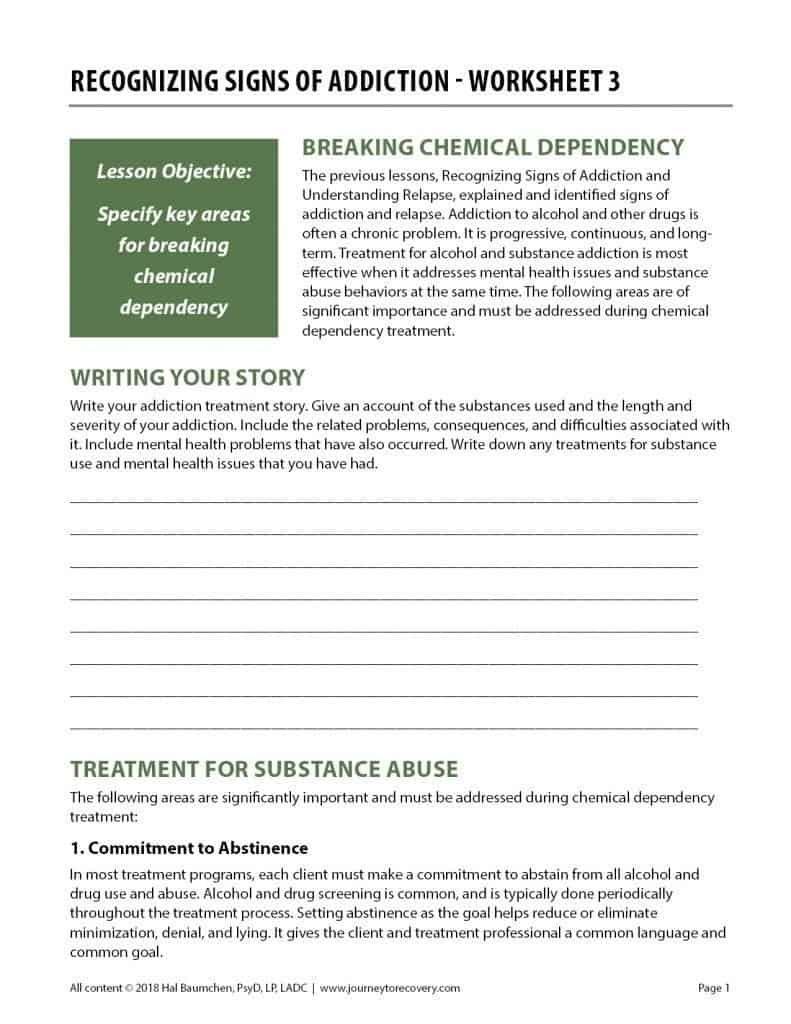
| Category | Description | Frequency | Consequences |
|---|---|---|---|
| Substance | |||
| Situation | |||
| Emotions | |||
| Thoughts |
Goal-Setting Worksheet
| Goal | Specific Steps | Timeline | Accountability |
|---|---|---|---|
Trigger Identification Worksheet
| Trigger | Situation | Emotions | Coping Strategies |
|---|---|---|---|
How to Use Substance Use Worksheets Effectively
To get the most out of substance use worksheets, follow these tips:
• Be honest and authentic: Answer questions truthfully, without sugarcoating or omitting details. • Use worksheets regularly: Establish a routine, whether daily, weekly, or monthly, to track progress and identify patterns. • Review and reflect: Regularly review completed worksheets to reflect on progress, identify areas for improvement, and adjust strategies as needed. • Share with a therapist or support group: Discuss worksheets with a therapist or support group to gain new insights, receive feedback, and stay accountable.
📝 Note: Substance use worksheets are not a replacement for professional therapy or treatment. They should be used in conjunction with other recovery tools and support systems.
Conclusion
Substance use worksheets are a valuable tool in the recovery process, providing a structured approach to understanding and managing substance use. By completing worksheets, individuals can gain self-awareness, develop coping skills, and improve relationships. Remember to use worksheets honestly, regularly, and in conjunction with other recovery tools and support systems.
What are substance use worksheets, and how can they help me in my recovery?
+Substance use worksheets are a tool designed to help individuals in recovery from substance use. They provide a structured approach to understanding and managing substance use, helping individuals identify triggers, track progress, and develop coping strategies.
Can I use substance use worksheets on my own, or do I need to work with a therapist?
+While substance use worksheets can be used independently, it is highly recommended to work with a therapist or support group to get the most out of them. A therapist or support group can provide guidance, feedback, and accountability, helping you stay on track with your recovery goals.
How often should I use substance use worksheets, and what is the best way to track my progress?
+The frequency of using substance use worksheets depends on your individual needs and goals. It is recommended to establish a routine, whether daily, weekly, or monthly, to track progress and identify patterns. Regularly reviewing completed worksheets can help you reflect on progress, identify areas for improvement, and adjust strategies as needed.
